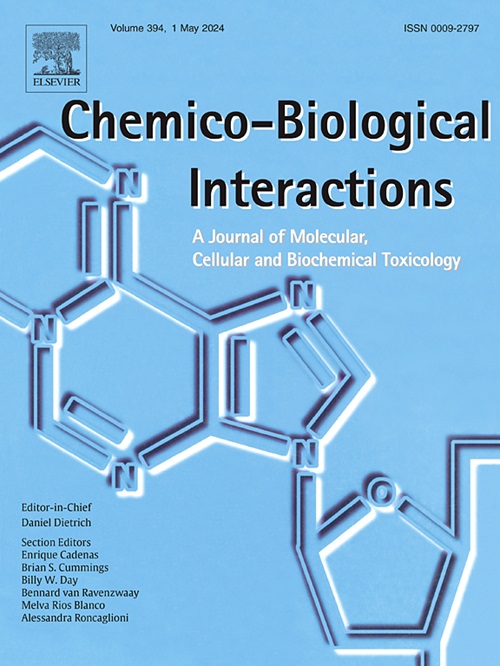Demethoxycurcumin induces metabolic crisis and ATF4/ATF3/CHOP-dependent cell death in hepatocellular carcinoma
IF 4.7
2区 医学
Q1 BIOCHEMISTRY & MOLECULAR BIOLOGY
引用次数: 0
Abstract
Demethoxycurcumin (DMC) has demonstrated remarkable anti-cancer properties across various tumor types. However, its efficacy in hepatocellular carcinoma (HCC) has not yet been established. Interestingly, the type of cell death induced by DMC was distinct from traditional pathways such as apoptosis, ferroptosis, necroptosis, pyroptosis, cuproptosis, and autophagy, indicating a need for further detailed exploration of its mechanisms. Our investigations revealed that DMC treatment led to a marked increase in oxidative stress, as evidenced by the accumulation of reactive oxygen species (ROS). This increase in ROS disrupted the iron-sulfur (Fe–S) cluster, impairing mitochondrial respiration. Additionally, ROS activation markedly reduced the rate of aerobic glycolysis by interfering with key glycolytic enzymes. The resultant inhibition of these bioenergetic pathways led to a significant depletion of ATP. Moreover, DMC activated the ATF4/ATF3/CHOP signaling axis, and the reduction of CHOP levels mitigated the cytotoxic effects of DMC in HCC cells. In conclusion, DMC initiated oxidative stress, which disrupted bioenergetic metabolism and activated the ATF4/ATF3/CHOP signaling pathway, ultimately leading to cell death in HCC cells. These findings suggest that DMC might have a potential role in the treatment of HCC. However, further validation through in vivo models and clinical trials is required to confirm the therapeutic potential of DMC against HCC. Moreover, more work is still needed to further explore the specific form of cell death induced by DMC.
去甲氧基姜黄素在肝细胞癌中诱导代谢危象和ATF4/ATF3/ chop依赖性细胞死亡
去甲氧基姜黄素(DMC)在多种肿瘤类型中显示出显著的抗癌特性。然而,其对肝细胞癌(HCC)的疗效尚未确定。有趣的是,DMC诱导的细胞死亡类型不同于传统的凋亡、铁坏死、坏死、焦亡、铜坏死和自噬等途径,这表明需要进一步详细探索其机制。我们的研究表明,DMC处理导致氧化应激显著增加,活性氧(ROS)的积累证明了这一点。ROS的增加破坏了铁硫(Fe-S)簇,损害了线粒体呼吸。此外,活性氧激活通过干扰关键的糖酵解酶显著降低有氧糖酵解的速率。这些生物能量途径的抑制导致ATP的大量消耗。此外,DMC激活了ATF4/ATF3/CHOP信号轴,CHOP水平的降低减轻了DMC在HCC细胞中的细胞毒性作用。综上所述,DMC引发氧化应激,破坏生物能量代谢,激活ATF4/ATF3/CHOP信号通路,最终导致HCC细胞死亡。这些发现提示DMC可能在HCC的治疗中具有潜在的作用。然而,需要通过体内模型和临床试验进一步验证DMC对HCC的治疗潜力。此外,还需要更多的工作来进一步探索DMC诱导细胞死亡的具体形式。
本文章由计算机程序翻译,如有差异,请以英文原文为准。
求助全文
约1分钟内获得全文
求助全文
来源期刊
CiteScore
7.70
自引率
3.90%
发文量
410
审稿时长
36 days
期刊介绍:
Chemico-Biological Interactions publishes research reports and review articles that examine the molecular, cellular, and/or biochemical basis of toxicologically relevant outcomes. Special emphasis is placed on toxicological mechanisms associated with interactions between chemicals and biological systems. Outcomes may include all traditional endpoints caused by synthetic or naturally occurring chemicals, both in vivo and in vitro. Endpoints of interest include, but are not limited to carcinogenesis, mutagenesis, respiratory toxicology, neurotoxicology, reproductive and developmental toxicology, and immunotoxicology.

 求助内容:
求助内容: 应助结果提醒方式:
应助结果提醒方式:


